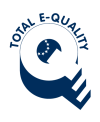Call for Membership: German Land Policy Revisited Reflections and Lessons from Abroad
 The German Academy for Spatial Research and Planning (ARL), investigates space both in terms of its physical structure and as a part of societal processes, and analyses pathways towards sustainable spatial development. The Academy addresses the economic, social, ecological, technological and cultural conditions of spatial development and the spatial effects of human activities, providing an innovative perspective on the complex challenges of future societies. As a multi-disciplinary network of experts from academia and practice, the ARL stimulates research activities and provides academic consultancy services. Inter- and transdisciplinary academic working groups at different scales ensure high quality scholarship. To establish an international working group (IAK) on
The German Academy for Spatial Research and Planning (ARL), investigates space both in terms of its physical structure and as a part of societal processes, and analyses pathways towards sustainable spatial development. The Academy addresses the economic, social, ecological, technological and cultural conditions of spatial development and the spatial effects of human activities, providing an innovative perspective on the complex challenges of future societies. As a multi-disciplinary network of experts from academia and practice, the ARL stimulates research activities and provides academic consultancy services. Inter- and transdisciplinary academic working groups at different scales ensure high quality scholarship. To establish an international working group (IAK) on
German Land Policy Revisited
Reflections and Lessons from Abroad
the ARL is currently looking for participants. The members of the working group will work for approximately three years together and address the topic and its sub-aspects both from inter- and transdisciplinary perspectives.
Challenges of land policy
Land is a scarce resource. Not only in many large German cities but across the country there is a great demand for affordable housing in inner cities and its urban fringes. Also in neighbouring countries, land is under pressure. In most major cities and even in rural areas, land prices are currently rising in such a way that it is becoming increasingly difficult to finance residential and commercial areas needs.
At the same time, urban densification and land thrift are policy goals in Germany and in many of its neighbouring countries. The demand for urban growth nurtured by interests of municipalities and housing seekers on the one hand, and environmental concerns for the preservation of landscapes on the other hand, are thus in conflict.
In this conflict, it becomes clear that the provision of building land is not only an administrative, but above all a land policy issue. In the current debate on building land provision, this political question is often pushed into the background by the discussion about the effectiveness of spatial planning instruments or the acceleration of building site planning procedures.
The responsible management of the resource land is thereby one of the core competencies and tasks of spatial planning. Spatial planning therefore needs to face the political challenges of dealing with land to work a sustainable use of scarce land. This requires a broad debate on instruments of land policy and its strategic use. This debate needs to also reflect notions of effectiveness, efficiency, justice and legitimacy. The challenges ahead and the strategic use of instruments go beyond the municipal level and require a regional cityscape perspective. Due to the great challenges but also the international experience, this debate needs to include expertise from neighbouring countries.
An international working group
The international working group „German Land Policy Revisited – Reflections and Lessons from Abroad” will inspirit the necessary debate in Germany with references to other European countries. International renowned experts on the area of land policy and spatial planning will gather and discuss the pressing issues (not only) on German land policy. Core issues will be how instruments of land policy are used and can be used strategically to govern the scarce resource of land effectively, efficiently, just, and in a legitimized way to address the planning challenges of our time.
Organisation and procedure
The call is addressed to academics, researchers, and practitioners from Germany and European countries, who have solid expertise on land policy and are interested to contribute (in a comparative perspective) to debate on the aforementioned challenges that German land policy is dealing with currently.
We invite you to participate in an International Working Group, initiated by ARL, which will be chaired by Prof. Dr. Thomas Hartmann (Wageningen University, NL) and Dr. Andreas Hengstermann (Bern University, CH). The working period will last for approx. three years. The group will meet for one to two workshops a year. Working language will be English. Meetings will be held at various locations in Germany and across Europe, mainly where group members are located. A first meeting will take place on 17 February 2010, 17-20 o’clock at the start of the 14th PLPR Annual Conference at Jan Evangelista Purkyně University in Ústí nad Labem, Czechia, see also: www.plpr-association.org.
The group will consist of up to twelve permanent expert members, complemented by invited experts relevant to the topics of research. Open meetings with the participation of scholars or session at international conferences (AESOP, PLPR) are possible to promote exchange and communication across Europe. The ARL will reimburse travel expenses to all working group members and invited experts according to the German Federal Travel Expenses Act.
The research and work programme will be set out in detail at the constituent meeting. The members are expected to contribute actively to this programme, establishing a fruitful and output-oriented dialogue. The results will be published in academic papers, and, in aggregate form, via communication channels of the ARL. In addition, this working group will work towards a book series on European land policies. Furthermore, the group will strive for presenting of findings in respective conferences and congresses within Europe (such as AESOP and PLPR).
Application
The IAK’s work programme requires a comparative, inter- and transdisciplinary approach, inviting the involvement of members of research institutions or responsible administrative units in urban and regional planning, law, geography, political sciences, regional economy, and other relevant disciplines. Besides experienced researchers and practitioners, we explicitly encourage women and young academics to apply (postdocs, lecturers, assistant professors).
If you are interested in participating in the working group, please submit your statement of interest (in digital form) by
10.01.2020
In your application you should
- briefly explain your personal interest in participating and draw your research perspectives and potential contributions to the working group (max. 300 words),
- illustratively present your relevant professional skills and experience in your CV
(including the bibliography of your most relevant publications/projects), - briefly describe the current land policy situation/debate/issues in your country (max. 900 words)
Please send your application in digital form to Andreas Stefansky as the responsible expert at the Academy for Spatial Research and Planning (ARL).
Contact
Dr. Andreas Stefansky
Academy for Spatial Research and Planning (ARL)
Head of Department “Spatial Planning, Spatial Policy”
Vahrenwalder Straße 247
30179 Hannover (Germany)
Tel.: +49-511 34842-43
stefansky@arl-net.de



